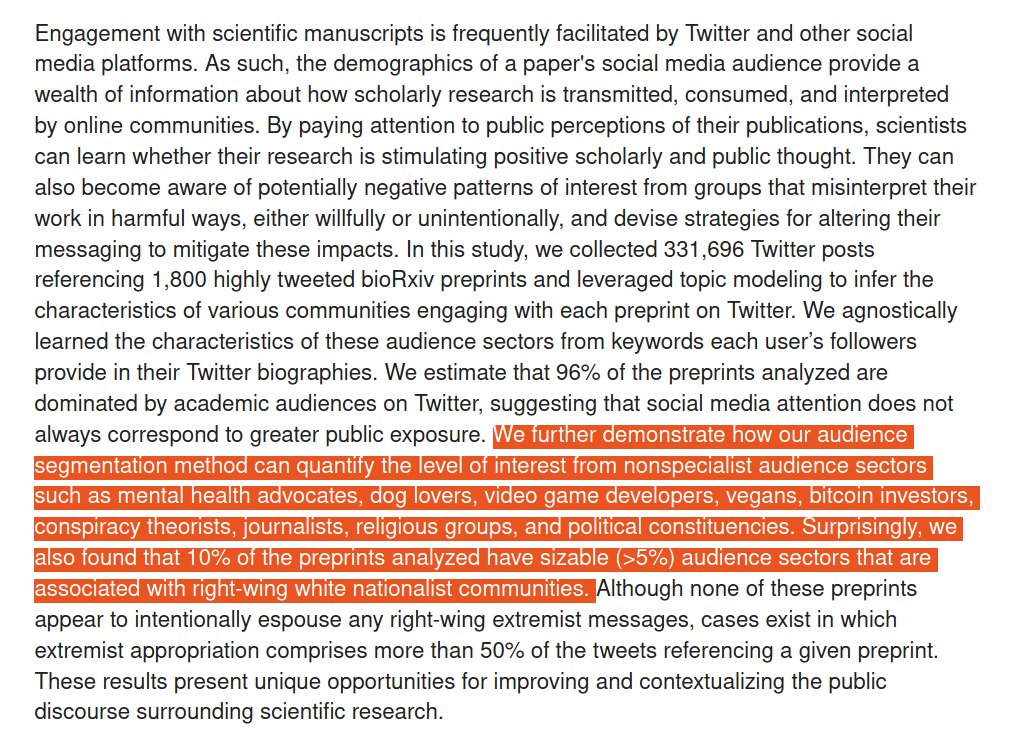
Today: listening to this
https://twitter.com/G_Karadzhov/status/1361338176045019138
Love this analysis of vulnerabilities to Wikipedia's knowledge integrity from this paper: arxiv.org/abs/1910.12596 

.@mad_astronaut using ML to predict when people click on citations (admittedly, mostly they don't but when they do)
- recent info
- open info
- personal info
- recent info
- open info
- personal info

Had to step out, so missed far more of this than I would have liked :-(
• • •
Missing some Tweet in this thread? You can try to
force a refresh




